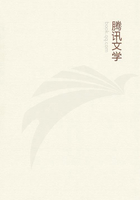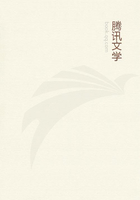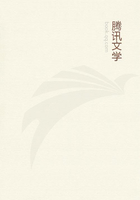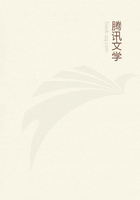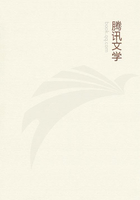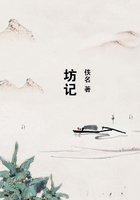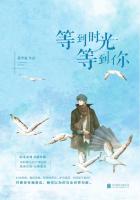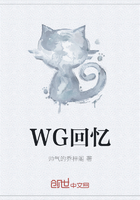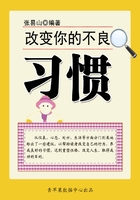Under these conditions circumnutation becomes irregular or ceases altogether. When the same experiment is made with a plant which has twined spirally up a stick, the process of climbing is checked and the last few turns become loosened or actually untwisted. From this it has been argued that Darwin was wrong in his description of circumnutation as an automatic change in the region of quickest growth. When the free end of a revolving shoot points towards the north there is no doubt that the south side has been elongating more than the north; after a time it is plain from the shoot hanging over to the east that the west side of the plant has grown most, and so on. This rhythmic change of the position of the region of greatest growth Darwin ascribes to an unknown internal regulating power.
Some modern physiologists, however, attempt to explain the revolving movement as due to a particular form of sensitiveness to gravitation which it is not necessary to discuss in detail in this place. It is sufficient for my purpose to point out that Darwin's explanation of circumnutation is not universally accepted. Personally I believe that circumnutation is automatic--is primarily due to internal stimuli. It is however in some way connected with gravitational sensitiveness, since the movement normally occurs round a vertical line. It is not unnatural that, when the plant has no external stimulus by which the vertical can be recognised, the revolving movement should be upset.
Very much the same may be said of the act of twining, namely that most physiologists refuse to accept Darwin's view (above referred to) that twining is the direct result of circumnutation. Everyone must allow that the two phenomena are in some way connected, since a plant which circumnutates clockwise, i.e. with the sun, twines in the same direction, and vice versa. It must also be granted that geotropism has a bearing on the problem, since all plants twine upwards, and cannot twine along a horizontal support. But how these two factors are combined, and whether any (and if so what) other factors contribute, we cannot say. If we give up Darwin's explanation, we must at the same time say with Pfeffer that "the causes of twining are...unknown." ("The Physiology of Plants", Eng.
Tr. (Oxford, 1906), III. page 37.)
Let us leave this difficult question and consider some other points made out in the progress of the work on climbing plants. One result of what he called his "niggling" ("Life and Letters", III. page 312.) work on tendrils was the discovery of the delicacy of their sense of touch, and the rapidity of their movement. Thus in a passion-flower tendril, a bit of platinum wire weighing 1.2 mg. produced curvature ("Climbing Plants", page 171.), as did a loop of cotton weighing 2 mg. Pfeffer ("Untersuchungen a.d. Bot.
Inst. z. Tubingen", Bd. I. 1881-85, page 506.), however, subsequently found much greater sensitiveness: thus the tendril of Sicyos angulatus reacted to 0.00025 mg., but this only occurred when the delicate rider of cottonwool fibre was disturbed by the wind. The same author expanded and explained in a most interesting way the meaning of Darwin's observation that tendrils are not stimulated to movement by drops of water resting on them. Pfeffer showed that DIRTY water containing minute particles of clay in suspension acts as a stimulus. He also showed that gelatine acts like pure water; if a smooth glass rod is coated with a 10 per cent solution of gelatine and is then applied to a tendril, no movement occurs in spite of the fact that the gelatine is solid when cold. Pfeffer ("Physiology", Eng.
Tr. III. page 52. Pfeffer has pointed out the resemblance between the contact irritability of plants and the human sense of touch. Our skin is not sensitive to uniform pressure such as is produced when the finger is dipped into mercury (Tubingen "Untersuchungen", I. page 504.) generalises the result in the statement that the tendril has a special form of irritability and only reacts to "differences of pressure or variations of pressure in contiguous...regions." Darwin was especially interested in such cases of specialised irritability. For instance in May, 1864, he wrote to Asa Gray ("Life and Letters", III. page 314.) describing the tendrils of Bignonia capreolata, which "abhor a simple stick, do not much relish rough bark, but delight in wool or moss." He received, from Gray, information as to the natural habitat of the species, and finally concluded that the tendrils "are specially adapted to climb trees clothed with lichens, mosses, or other such productions." ("Climbing Plants", page 102.)Tendrils were not the only instance discovered by Darwin of delicacy of touch in plants. In 1860 he had already begun to observe Sundew (Drosera), and was full of astonishment at its behaviour. He wrote to Sir Joseph Hooker ("Life and Letters", III. page 319.): "I have been working like a madman at Drosera. Here is a fact for you which is certain as you stand where you are, though you won't believe it, that a bit of hair 1/78000 of one grain in weight placed on gland, will cause ONE of the gland-bearing hairs of Drosera to curve inwards." Here again Pfeffer (Pfeffer in "Untersuchungen a. d. Bot. Inst. z. Tubingen", I. page 491.) has, as in so many cases, added important facts to my father's observations. He showed that if the leaf of Drosera is entirely freed from such vibrations as would reach it if observed on an ordinary table, it does not react to small weights, so that in fact it was the vibration of the minute fragment of hair on the gland that produced movement. We may fancifully see an adaptation to the capture of insects--to the dancing of a gnat's foot on the sensitive surface.

